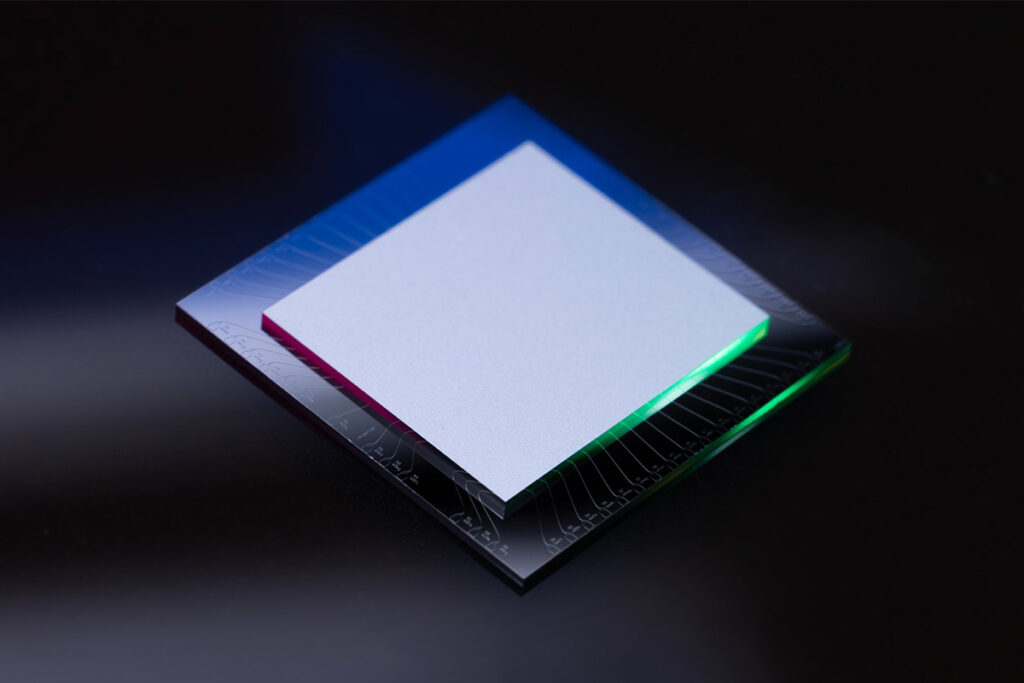
Amazon Web Services (AWS) has officially launched Ocelot, a groundbreaking quantum computing chip that debuted on Thursday, February 27, 2025. Ocelot has the potential to reduce the costs of quantum error correction by up to 90%, marking a significant leap toward fault-tolerant quantum computers capable of solving complex problems beyond the reach of classical computing.
A Novel Approach to Quantum Error Correction
Developed at the AWS Center for Quantum Computing at Caltech, Ocelot introduces a pioneering architecture that integrates quantum error correction from the ground up. Central to its design is the ‘cat qubit’—named after Schrödinger’s cat thought experiment—which inherently suppresses specific types of quantum errors. This innovative approach drastically reduces the resources needed for error correction, making large-scale quantum computing more feasible.
By integrating cat qubit technology with additional quantum error correction components, AWS researchers have, for the first time, successfully implemented a scalable quantum microchip using manufacturing techniques adapted from the microelectronics industry. This represents a paradigm shift, much like the transition from vacuum tubes to transistors that revolutionized classical computing.
“With recent advancements in quantum research, it’s no longer a question of ‘if’ but ‘when’ fault-tolerant quantum computers will become a reality,” said Oskar Painter, AWS Director of Quantum Hardware. “Ocelot is an important milestone in that journey. Our architecture could reduce quantum chip costs to as little as one-fifth of current approaches, accelerating our timeline to practical quantum computing by up to five years.”
The Challenge of Quantum Computing
Quantum computers are highly sensitive to environmental ‘noise’—vibrations, heat, electromagnetic interference, and even cosmic radiation—all of which can disrupt qubits and introduce errors. Historically, this has been a major obstacle to building reliable quantum computers. While traditional quantum error correction encodes quantum information across multiple qubits to detect and correct errors, it requires enormous resources, making it prohibitively expensive.
How Ocelot Changes the Game
Unlike conventional approaches that attempt to add error correction as an afterthought, Ocelot was designed with error correction at its core. “We reimagined the entire architecture, choosing our qubits and design to prioritize error correction from the start,” Painter explained. “This approach allows us to scale quantum systems far more efficiently.”
AWS estimates that scaling Ocelot to a full-scale, fault-tolerant quantum computer would require only one-tenth of the resources needed for conventional quantum error correction methods. This dramatic reduction in overhead could enable faster commercialization of quantum computing for real-world applications.
Potential Real-World Applications
By reducing the resource demands of quantum computing, Ocelot paves the way for practical applications in fields such as:
- Drug discovery and development – Simulating molecular interactions for new medicines.
- Material science – Designing novel materials with unprecedented properties.
- Financial modeling – Enhancing risk analysis and investment strategies.
- Optimization problems – Improving logistics, supply chains, and complex decision-making.
Ocelot’s Technical Highlights
- Prototype quantum computing chip designed to test AWS’s quantum error correction architecture.
- Composed of two integrated silicon microchips, each roughly 1 cm², bonded together in an electrically connected stack.
- Utilizes superconducting materials on silicon chips to form quantum circuit elements.
- Comprises 14 core components: five cat qubits (for computation), five buffer circuits (to stabilize qubits), and four additional qubits (to detect errors).
- Leverages high-quality oscillators made from superconducting Tantalum to store quantum states with improved performance.
The Road Ahead
While Ocelot is still a prototype, AWS remains committed to continuous innovation in quantum computing. Just as AWS refined cloud computing hardware over the years, it is taking a similarly iterative approach to quantum technology. “We are in the early stages of scaling,” Painter said. “The challenge is immense, but so is the potential impact. Our focus is on continuous learning, integrating academic research, and refining our engineering efforts.”
Getting Started with Quantum Computing
For those looking to explore quantum computing today, AWS offers Amazon Braket—a fully managed quantum computing service that provides access to third-party quantum hardware, high-performance simulators, and a suite of tools for developers, researchers, and students.
With the introduction of Ocelot, AWS is not just pushing the boundaries of quantum computing but actively accelerating its transition from theory to real-world application. As AWS continues to refine its approach, the era of practical, fault-tolerant quantum computing is drawing ever closer.




